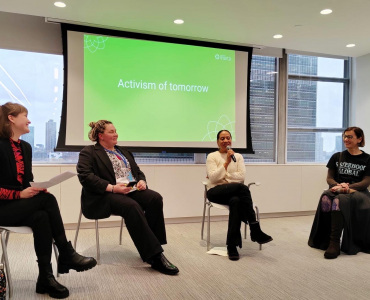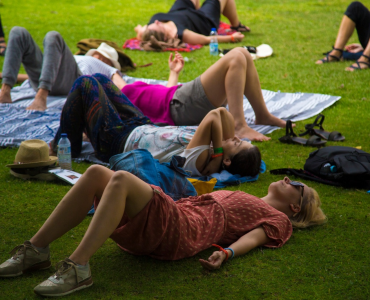UNTOLD STORIES
There are many untold stories in the world, mostly because it has not been safe to tell them. I think everyone had a moment in their lives when you just have to hold back the tears and keep quiet. In most cases, these stories remain untold, yet are never forgotten.
In the MARTA centre, every week fifty courageous women tell their stories of abuse and humiliation either by their family members or by strangers, continuously trying to find ways to better their lives.
The amount of unknown stories is clearly visible in the current statistics:
• Every third woman in Latvia suffers sexual or physical abuse in the family (EU Agency of Fundamental Rights);
• At least 5 women have been killed in 2016 by their spouses (Ministry of Interior);
• At least 58 women have ended in hospital in 2016, because of injuries suffered from their spouses (Centre for Disease Prevention and Control);
• 123 women have tried to commit suicide in 2016 due to sexual and physical abuse or threats by spouse or family member (Centre for Disease Prevention and Control);
• More than 100 children have suffered from parental abuse;
• Out of 12 killed children, six have been killed by their relatives;
• Out of 134 children that have suffered sexual abuse in 2016, 62 children were targeted by their relatives (National Statistics Office);
• Police have been called to intervene in familial disputes 7211 times in 2016 (National Statistics);
• In the framework of human trafficking programme, MARTA has succeeded to help 13 women that have suffered from sexual abuse and 6 children that have suffered from sexual abuse or have been recruited in gangs in last two years. In the majority of cases (9 out of 17), children who have been engaged in sexual exploitation have previously experienced physical or sexual abuse in the family.
We need to stay aware that many people still remain outside the reach of help.
In last couple months, the public debate regarding abuse in the family, abuse against women, children and men has gained a momentum. Throughout debate several high level state officials have stated that the current legislation with regards to human trafficking and physical and sexual abuse is the best Latvia has ever had.
There has indeed been a positive change in recent years. MARTA itself has contributed and to would like to emphasise three important legislative changes in particular:
• First of all, since spring 2014, the legislation with regards to temporary protection from abuse has been amended in a way that provides necessary support to the survivors and increases the responsibility of the abuser, for example, abusers have to leave home and the courts are obliged to issue restraining order within 24 hours after receiving the case.
• Secondly, the definition of human trafficking across the legislation now includes the reference to the vulnerability and foresees punishment for prostitution of human trafficking victims and children. In 2015 for the first time children have been recognised as victims of human trafficking and can receive assistance.
• Thirdly, the law now foresees that children that have suffered abuse can turn to the police and courts 20 years after reaching their age of majority rather than 20 years after the fact of abuse as foreseen before.
Nevertheless, throughout the conversations with women and exchanges with experts in the field, it is clear that there is still much to do in order to provide necessary support to the abuse or human trafficking survivor. It is essential for institutions to stop blaming each other for their misgivings and start to coordinate and cooperate between themselves to provide best possible help they can.
MARTA recently carried out a focus group discussion for women who have successfully left abusive relationship and surprisingly how their experience and observations match the experiences of women worldwide.
Many women have stated that the police intervention has to be immediate – the abuser and the abused have to be separated, without requesting woman’s consent. As she just have been abused, humiliated and is in state of fear from possible retribution. One woman used allegory to traffic police to compare and explain the situation: “When police stops a drunk driver, there are no negotiations regarding his future possibility to drive. The choice is simply taken away. However, in cases of familial abuse, police often engages in negotiations and efforts for reconciliation, and does not remove the abuser straight away. Thus, women often loose any strength and willingness to turn for help”.
In order to stop abuse, the abuser has to learn the consequences of his/her own action – jail or participation in batterers programme. Such measures would make him or her to stop and reconsider his or hers actions. Although Ministry of Welfare provides opportunities for such rehabilitation, the abusers do not attend the meetings or use the services. One of the key policy issues in the future is to create a mechanism where abusers are forced to attend meetings and follow through with the course.
Furthermore, women are very afraid to turn to family tribunals, because they are afraid that their children will be taken away. According to their experience, the officials working in family tribunals and social welfare services often blame them for not creating a safe environment for their children, for being beaten up and often are more sympathetic to the abusers. MARTA has seen a case, where husband, who has been charged with pimping, received full custody of a child rather than the child’s non-violent mother. Only after long court battle mother was able to obtain full custody and receive temporary protection.
Women also suggested that when women receive temporary protection, it should automatically be extended to her children. Otherwise, children can become objects of manipulation by the abusers.
Furthermore, when woman is filing/applying for temporary protection, police should act immediately to avoid situations when woman is explaining the situation over the phone, and the abuser can simply throw it away, without any further action from police.
Many women have refused rehabilitation services provided by the state, as that requires sharing their data and information with other state services. However, they would be grateful if NGOs or state institutions providing support services would contact them straight after the act of the abuse has been registered by the police, for example, the crime processing protocol would also be sent to service provider at the same time.
According to widespread experience of women’s support organisations such as MARTA, the lack of immediate assistance can contribute to other crimes, for example, forceful prostitution. In 2013, the joint research carried out by MARTA and Estonian centre “Atoll” under the name “Human trafficking recruitment process and the image of woman via Internet. The case studies of Latvia, Estonia and the UK” showed that the majority of women recruited for prostitution whilst they were still under aged girls, experiencing abuse in the family. According to women:
“I started to run away from home to live on my own. I started to sell fish. I got married and he brought me to Riga, and then left me. I did not know where to go.”
“I just simply thought – why can’t I do it for money, if I am being raped anyways?”
Many of these women have experienced poverty, neglect and/or sexual abuse by their fathers or stepfathers. The women working as prostitutes have repeatedly stated that many girls who have just started to work on the streets are 15 to 16 year olds, or as stated by women themselves “straight from school”.
In case of abuse within the family, we have successfully created shame-free support system for the abuse survivors, increasingly demanding for more accountability from the abuser. However, when it comes to prostitution, the current legislation remains ambiguous, shifting the blame to the prostitute.
Therefore, when it comes to prostitution, it is highly important for us to understand what is working, what needs to be improved and what has worked so far in other countries.
We are currently working towards law on preventive protection from sexual offences and law on prohibiting prostitution.
Today we will have a chance to hear more about the positive experience from other countries. The first part of the conference is dedicated to discuss the domestic violence, and the second part is focused more on exploring the links between sexual and physical abuse in the family and further sexual exploitation. We will look in detail how current laws and policies address such issues, and if the state institutions share the common understanding and definitions, when identifying the victims of the abuse.
A lot of best practices in Europe with regards to domestic abuse in Europe have been taken over from the USA. The USA, however, has learned from a small city Duluth in Minnesota, where already 40 years ago so called Duluth model was created, insisting that the abuser has to leave home. Many countries have learned from this model and the first legislative change in Europe in terms of victim protection took place in Austria, and stated that it is the abuser who must leave home and not the abused.
Finally, France has always been an example to Latvia when it comes to legislation regulating prostitution. However, we are glad to announce that the series of laws on prostitution similar to ones in Sweden will be adopted this year.
The aim of this conference is to help not only legislators and policy leads, but also day-to-day practitioners – police force, social welfare and NGO workers. The aim of this conference is to understand better the link between domestic violence and other crimes, as well as the reasons for prostitutions and profiteering at the expense of human vulnerability.
I believe that at the end of this day we will be smarter, more inspired and more capable to help, when standing in front of the abuse victim and his or her abuser.


